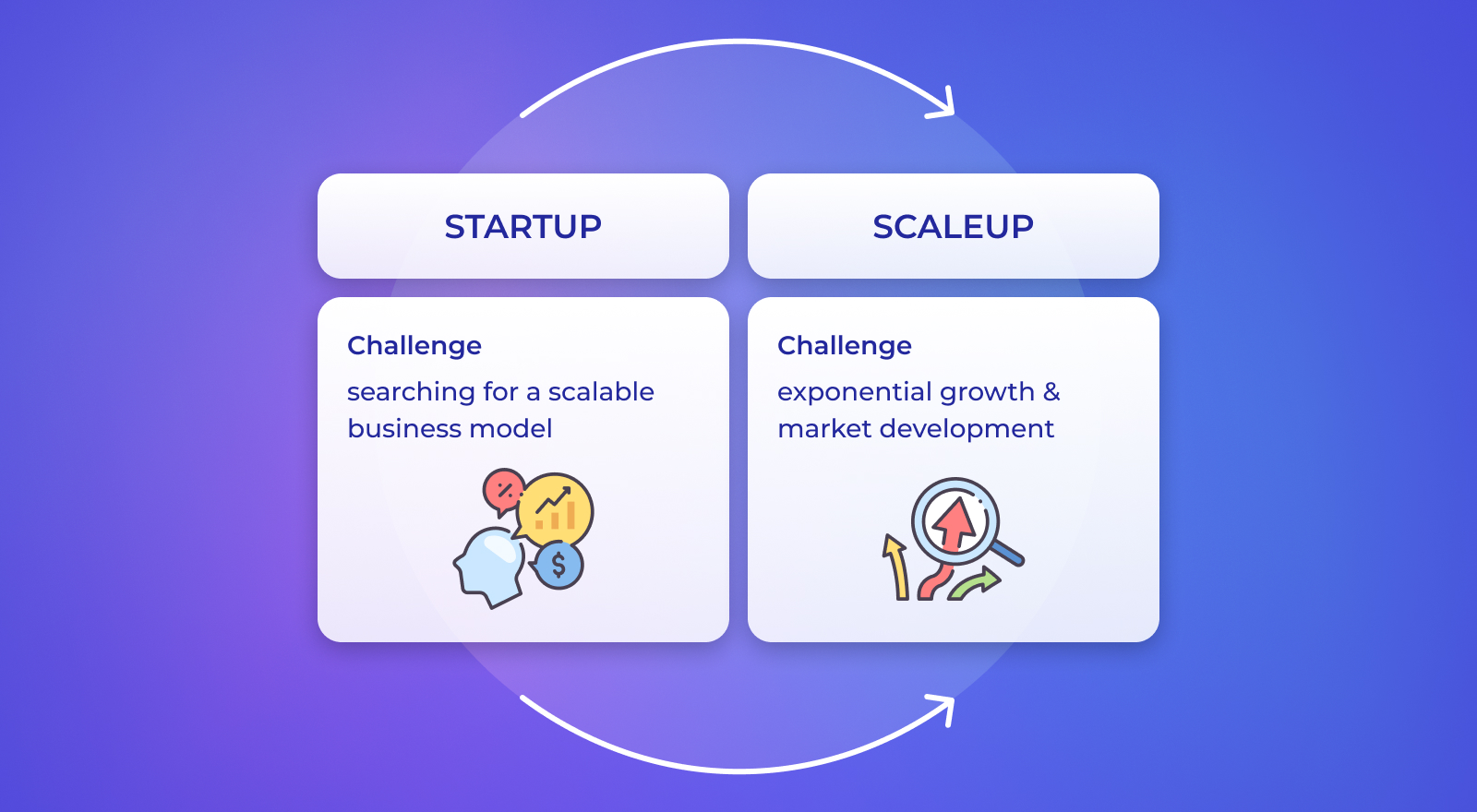Unlocking the Secrets of Sustainable Growth
Scaling a startup is a complex and challenging process that requires careful planning, strategic decision-making, and a deep understanding of the market and industry. As a startup grows, it faces numerous challenges, including managing rapid expansion, maintaining a strong company culture, and adapting to changing market conditions. However, with a well-planned scaling strategy, startups can overcome
How to Build a Strong Foundation for Growth
A scalable business model is the foundation upon which successful startups are built. It enables companies to adapt to changing market conditions, respond to customer needs, and stay ahead of the competition. A strong foundation for growth consists of three essential elements: a robust value proposition, efficient operations, and a talented team.
A robust value proposition is critical for attracting and retaining customers. It should clearly articulate the unique benefits and value that the startup offers, and differentiate it from competitors. For example, Airbnb’s value proposition is centered around providing a unique and personalized travel experience, which has enabled the company to disrupt the traditional hospitality industry.
Efficient operations are also crucial for scaling a startup. This includes streamlining processes, automating tasks, and outsourcing non-core functions. By optimizing operations, startups can reduce costs, improve productivity, and increase efficiency. For instance, Amazon’s use of automation and artificial intelligence has enabled the company to process and fulfill orders quickly and efficiently, which has contributed to its rapid growth and success.
A talented team is the third essential element of a scalable business model. Startups need to attract and retain top talent to drive growth and innovation. This includes hiring experienced professionals, providing training and development opportunities, and fostering a positive company culture. For example, Google’s emphasis on innovation and employee satisfaction has enabled the company to attract and retain top talent, which has contributed to its success and dominance in the tech industry.
By building a strong foundation for growth, startups can set themselves up for success and achieve sustainable growth. This includes developing a robust value proposition, optimizing operations, and attracting and retaining top talent. By focusing on these essential elements, startups can create a scalable business model that enables them to adapt to changing market conditions and stay ahead of the competition.
Examples of successful startups that have built strong foundations for growth include Uber, which has developed a robust value proposition centered around providing convenient and affordable transportation, and Slack, which has optimized its operations through the use of automation and artificial intelligence. By following in the footsteps of these successful startups, companies can build a strong foundation for growth and achieve sustainable success.
Identifying and Leveraging Key Growth Drivers
When it comes to scaling a startup, identifying and leveraging key growth drivers is crucial for achieving sustainable growth. Growth drivers are the factors that contribute to a startup’s growth and success, and they can be categorized into three main areas: market trends, customer needs, and competitive advantages.
Market trends refer to the external factors that affect a startup’s growth, such as changes in consumer behavior, technological advancements, and shifts in the competitive landscape. By staying on top of market trends, startups can identify opportunities for growth and adjust their strategies accordingly. For example, the rise of social media has created new opportunities for startups to reach and engage with customers.
Customer needs refer to the internal factors that drive a startup’s growth, such as customer demand, preferences, and pain points. By understanding customer needs, startups can develop products and services that meet those needs and drive growth. For instance, companies like Warby Parker and Dollar Shave Club have disrupted traditional industries by offering products and services that meet the changing needs of consumers.
Competitive advantages refer to the unique strengths and capabilities that set a startup apart from its competitors. By identifying and leveraging competitive advantages, startups can differentiate themselves and drive growth. For example, companies like Amazon and Google have built strong competitive advantages through their innovative use of technology and data analytics.
To identify and leverage key growth drivers, startups need to analyze and prioritize these factors. This involves conducting market research, gathering customer feedback, and assessing the competitive landscape. By doing so, startups can develop a growth strategy that is tailored to their unique strengths and opportunities.
For example, a startup in the e-commerce space might identify the following growth drivers: increasing demand for online shopping, growing competition from established players, and the need for personalized customer experiences. By prioritizing these growth drivers, the startup can develop a growth strategy that focuses on improving the customer experience, expanding its product offerings, and investing in marketing and advertising.
By identifying and leveraging key growth drivers, startups can drive sustainable growth and achieve long-term success. This requires a deep understanding of the market, customers, and competitors, as well as the ability to analyze and prioritize growth drivers. By doing so, startups can develop a growth strategy that is tailored to their unique strengths and opportunities, and drive growth and success in the process.
Scaling Your Team for Growth
As a startup grows, its team must also grow and evolve to support the increasing demands of the business. Scaling a team can be a challenging and complex process, requiring careful planning and execution. However, with the right strategies and approaches, startups can build high-performing teams that can support rapid growth and drive long-term success.
One of the biggest challenges of scaling a team is hiring the right talent. As a startup grows, it needs to attract and retain top performers who can help drive growth and innovation. This requires a strategic approach to recruitment, including identifying the right job requirements, developing effective job descriptions, and leveraging social media and other recruitment channels to reach top candidates.
Another key challenge of scaling a team is training and development. As new employees join the team, they need to be trained and developed to ensure they have the skills and knowledge required to perform their jobs effectively. This includes providing ongoing training and development opportunities, as well as mentoring and coaching to help employees grow and develop in their roles.
Retaining top talent is also critical when scaling a team. As a startup grows, it can be tempting to focus on hiring new employees, but retaining existing employees is just as important. This requires creating a positive and supportive company culture, offering competitive compensation and benefits, and providing opportunities for growth and development.
Some of the most successful startups have built high-performing teams by focusing on these key areas. For example, companies like Google and Facebook have developed strong company cultures that attract and retain top talent. They have also invested heavily in training and development programs to ensure their employees have the skills and knowledge required to drive growth and innovation.
Other strategies for scaling a team include outsourcing non-core functions, such as accounting and HR, to free up resources for more strategic activities. Startups can also leverage technology, such as project management tools and communication platforms, to streamline operations and improve productivity.
Ultimately, scaling a team requires careful planning, strategic execution, and a focus on building a positive and supportive company culture. By prioritizing these areas, startups can build high-performing teams that can support rapid growth and drive long-term success.
When it comes to startup growth and scaling, having the right team in place is critical. By focusing on hiring, training, and retaining top talent, startups can build the foundation they need to drive growth and innovation. With the right team in place, startups can overcome the challenges of scaling and achieve long-term success.
Optimizing Operations for Efficiency and Effectiveness
As a startup grows, its operations must also evolve to support the increasing demands of the business. Optimizing operations is critical for achieving efficiency and effectiveness, and for supporting scalable growth. This includes streamlining processes, automating tasks, and outsourcing non-core functions.
Process automation is a key strategy for optimizing operations. By automating repetitive and time-consuming tasks, startups can free up resources for more strategic activities, such as product development and marketing. For example, companies like Zapier and IFTTT have developed automation tools that enable startups to streamline their workflows and improve productivity.
Outsourcing non-core functions is another strategy for optimizing operations. By outsourcing functions such as accounting, HR, and customer service, startups can focus on their core competencies and improve efficiency. For example, companies like Upwork and Fiverr have developed platforms that enable startups to outsource tasks and projects to freelancers and agencies.
Technology adoption is also critical for optimizing operations. By leveraging technologies such as cloud computing, artificial intelligence, and machine learning, startups can improve efficiency, reduce costs, and drive growth. For example, companies like Amazon Web Services and Google Cloud have developed cloud-based platforms that enable startups to scale their operations and improve productivity.
Streamlining operations is also essential for achieving efficiency and effectiveness. This includes simplifying processes, reducing waste, and improving communication. For example, companies like Toyota and General Electric have developed lean manufacturing methodologies that enable them to streamline their operations and improve productivity.
When it comes to startup growth and scaling, optimizing operations is critical for achieving efficiency and effectiveness. By streamlining processes, automating tasks, and outsourcing non-core functions, startups can free up resources for more strategic activities and drive growth. With the right operations in place, startups can overcome the challenges of scaling and achieve long-term success.
Some of the most successful startups have optimized their operations by focusing on these key areas. For example, companies like Airbnb and Uber have developed streamlined processes and automated tasks to improve efficiency and reduce costs. They have also leveraged technology to drive growth and improve productivity.
By optimizing operations, startups can achieve efficiency and effectiveness, and support scalable growth. This requires a focus on streamlining processes, automating tasks, and outsourcing non-core functions, as well as leveraging technology to drive growth and improve productivity.
Managing Finances for Scalable Growth
As a startup grows, its financial management must also evolve to support the increasing demands of the business. Managing finances for scalable growth requires careful planning, strategic decision-making, and a deep understanding of the startup’s financial situation.
Cash flow management is critical for startups, as it enables them to meet their financial obligations and invest in growth initiatives. Startups must carefully manage their cash flow by monitoring their income and expenses, managing their accounts receivable and payable, and maintaining a cash reserve.
Funding options are also essential for startups, as they provide the necessary capital to support growth initiatives. Startups can explore various funding options, such as venture capital, angel investors, and crowdfunding, to raise the capital they need to scale.
Budgeting for growth is another important aspect of financial management for startups. Startups must create a budget that allocates resources to support growth initiatives, such as hiring new employees, investing in marketing and advertising, and developing new products and services.
Financial planning and analysis are also crucial for startups, as they enable them to make informed decisions about their financial situation. Startups must regularly review their financial statements, analyze their financial performance, and make adjustments to their financial plan as needed.
Some of the most successful startups have managed their finances effectively by focusing on these key areas. For example, companies like Airbnb and Uber have carefully managed their cash flow, explored various funding options, and budgeted for growth to support their rapid expansion.
By managing finances effectively, startups can support scalable growth and achieve long-term success. This requires careful planning, strategic decision-making, and a deep understanding of the startup’s financial situation.
When it comes to startup growth and scaling, financial management is critical for achieving success. By managing cash flow, exploring funding options, budgeting for growth, and conducting financial planning and analysis, startups can support scalable growth and achieve long-term success.
Startups must also be prepared to adapt to changing financial circumstances and make adjustments to their financial plan as needed. This requires a flexible and agile approach to financial management, as well as a deep understanding of the startup’s financial situation.
Measuring and Monitoring Progress
When scaling a startup, it’s essential to measure and monitor progress to ensure that the company is on track to achieve its goals. This involves tracking key performance indicators (KPIs), metrics, and benchmarks to inform scaling decisions and drive growth.
KPIs are quantifiable measures that indicate a startup’s progress towards its goals. Examples of KPIs include revenue growth, customer acquisition, and retention rates. By tracking KPIs, startups can identify areas of strength and weakness, and make data-driven decisions to drive growth.
Metrics are specific measures that provide insight into a startup’s performance. Examples of metrics include website traffic, social media engagement, and customer satisfaction ratings. By tracking metrics, startups can gain a deeper understanding of their customers and market, and make informed decisions to drive growth.
Benchmarks are standards or reference points that startups can use to measure their performance. Examples of benchmarks include industry averages, competitor performance, and internal targets. By tracking benchmarks, startups can evaluate their performance relative to others in their industry, and identify areas for improvement.
Some of the most successful startups have used data to inform their scaling decisions and drive growth. For example, companies like Airbnb and Uber have used data analytics to optimize their pricing, improve their customer experience, and drive growth.
When it comes to startup growth and scaling, measuring and monitoring progress is critical for achieving success. By tracking KPIs, metrics, and benchmarks, startups can gain a deeper understanding of their performance, identify areas for improvement, and make data-driven decisions to drive growth.
Startups must also be prepared to adapt to changing circumstances and adjust their metrics and benchmarks accordingly. This requires a flexible and agile approach to measuring and monitoring progress, as well as a deep understanding of the startup’s goals and objectives.
By using data to inform their scaling decisions, startups can drive growth, improve their performance, and achieve long-term success. This requires a commitment to measuring and monitoring progress, as well as a willingness to adapt and adjust to changing circumstances.
Sustaining Momentum and Overcoming Challenges
Scaling a startup can be a challenging and complex process, and it’s not uncommon for startups to face obstacles and setbacks along the way. However, with the right strategies and approaches, startups can sustain momentum and overcome challenges to achieve long-term success.
Maintaining company culture is critical for sustaining momentum and overcoming challenges. As a startup grows, it’s essential to preserve the culture and values that have driven its success to date. This includes fostering a positive and inclusive work environment, encouraging open communication and collaboration, and recognizing and rewarding employee contributions.
Managing complexity is another key challenge that startups face when scaling. As a startup grows, its operations and systems can become increasingly complex, making it difficult to manage and maintain. To overcome this challenge, startups must implement efficient and effective systems and processes, and invest in technology and tools that can help streamline operations and improve productivity.
Overcoming obstacles is also essential for sustaining momentum and achieving long-term success. Startups must be prepared to adapt to changing circumstances and overcome obstacles such as funding constraints, talent shortages, and market fluctuations. This requires a flexible and agile approach to business, as well as a deep understanding of the startup’s goals and objectives.
Some of the most successful startups have sustained momentum and overcome challenges by focusing on these key areas. For example, companies like Airbnb and Uber have maintained their company culture and values despite rapid growth, and have implemented efficient and effective systems and processes to manage complexity. They have also demonstrated a willingness to adapt and overcome obstacles, and have invested in technology and tools to drive growth and innovation.
When it comes to startup growth and scaling, sustaining momentum and overcoming challenges is critical for achieving long-term success. By maintaining company culture, managing complexity, and overcoming obstacles, startups can drive growth, improve their performance, and achieve their goals.
Startups must also be prepared to learn from their mistakes and use them as opportunities for growth and improvement. This requires a growth mindset and a willingness to take calculated risks, as well as a deep understanding of the startup’s strengths and weaknesses.
By sustaining momentum and overcoming challenges, startups can achieve long-term success and drive growth and innovation in their industry. This requires a focus on maintaining company culture, managing complexity, and overcoming obstacles, as well as a willingness to adapt and learn from mistakes.





